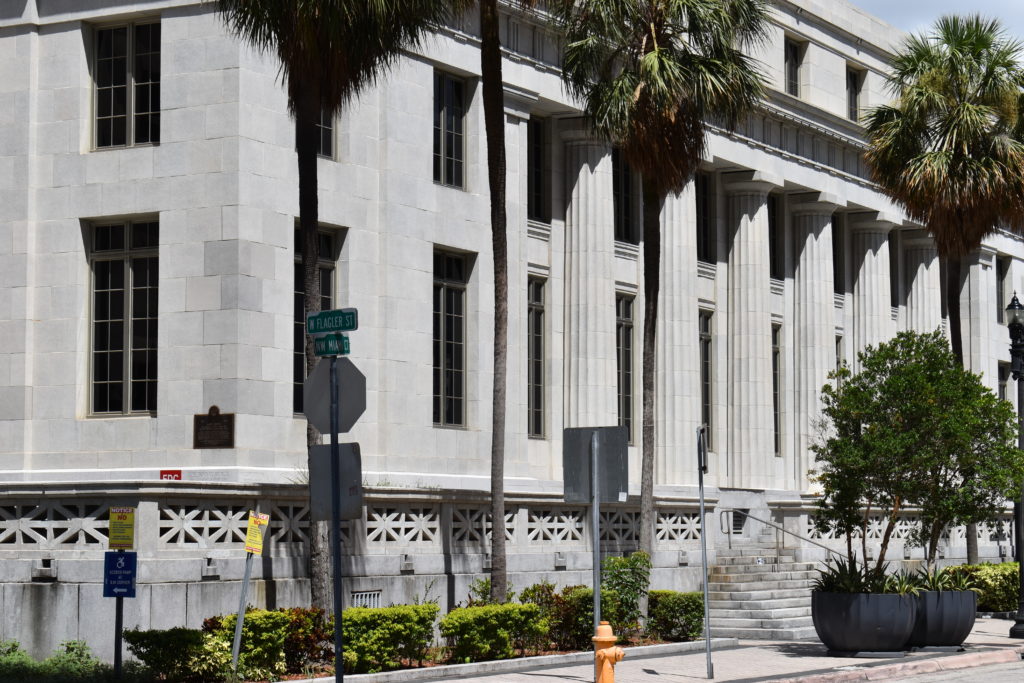The “Business Records Exception” to the Hearsay Rule in Florida

Are you in a lawsuit where business records are at issue? Like a Florida trust case involving bank account statements or cell phone records? Then you may need to satisfy what Florida probate lawyers call the “business records exception” before the court will even let the documents into evidence. Failing to meet the requirements of the business records exception found in Section 90.803 of the Florida Evidence Code (which you can view for free here) could sink your case.
Last month, the Florida Supreme Court decided an important foreclosure case on the business records exception, overturning a prior Florida appeals court case. Read on to hear what Palm Beach trial lawyers have to say about this important case and the business records exception.
What is “hearsay” and why does it matter?
“Hearsay” is any statement, except for the testimony of a live witness, which is offered to a court in order to prove that what the statement says is true. Hearsay is defined by Florida Statutes Section 90.801, which you can view for free here. Hearsay is generally inadmissible and will NOT be considered by a court unless there is an exception to the hearsay rule.
For example, in an auto accident case that depends on proving whether a traffic light was red or green, a witness can testify that she saw that the light was red. However, that same witness would NOT be allowed to testify that a police officer told her that the light was red.
Why the difference? Florida courts consider secondhand statements much less reliable than firsthand knowledge. And the source of the hearsay statement (in this case, the police officer) can’t be questioned by the other party and can’t be examined by the court to see if they are telling the truth.
What is the “business records exception” to the hearsay rule?
You might be surprised to learn that many common documents are hearsay, such as bank account statements. However, there are lots of exceptions to the hearsay rule, and one of the most important is the “business records exception” under Florida Statutes Section 90.803(6).
Under the business records exception, a document can be admitted into evidence if (1) it was “made at or near the time” of the events being recorded in the document, (2) it was made “by, or from information transmitted by, a person with knowledge” of those events, (3) it was “kept in the course of a regularly conducted business activity,” and (4) “it was the regular practice of that business activity to make” the document.
Just showing the document itself is not enough to satisfy these requirements! Instead, the party offering the business record must lay the “foundation” for its admission, including by submitting testimony or a written certification from what is called a “records custodian.” A records custodian is a person with knowledge of how the company’s records are kept.
The foundation required for the business records exception has been the subject of decades of litigation, including last month’s decision by the Supreme Court of Florida.
What foundation is needed for the business records exception?
The Florida Supreme Court addressed the business records exception and records custodians in Jackson v. Household Finance Corporation, Case No. SC18-357 on July 2, 2020. You can read this decision for free.
Jackson v. Household Finance Corporation was a foreclosure case where a mortgage company claimed that a homeowner had failed to pay her loan. At trial, the mortgage company wanted to admit the original note, mortgage, and loan payment history into evidence to prove that what the documents said was true – that the homeowner had failed to pay her loan. To do so, the company called its assistant vice president “to establish the foundation for admission of records under the business records exception to the hearsay rule.” The homeowner raised a hearsay objection, which the trial court overruled.
On appeal, the Florida Supreme Court said that the trial court was correct. The Supreme Court said it is not necessary for a records custodian to be “the person who created the business records,” nor it is necessary to call the person in the company “who observed the matter recorded or actually made the entry” in the records. All that is needed is testimony from someone “with personal knowledge of the organization’s regular business practices relating to creating and retaining the record(s) at issue.”
The mortgage company’s witness in Jackson v. Household Finance Corporation was qualified as a records custodian, because he had worked for the company for 25 years and testified he was familiar with the company’s business practices. The witness said the documents met all the requirements of Section 90.803(6), and he demonstrated “that he had working knowledge of [the] relevant record-keeping practices and system.” The Florida Supreme Court rejected an earlier Fourth District Court of Appeals case, Maslak v. Wells Fargo Bank, N.A., 190 So. 3d 656 (Fla. 4th DCA 2016), because that case incorrectly required a custodian to specify “details of the bank’s “procedures for inputting payment information into their systems and how the payment history was produced.”
When you’re faced with tricky evidence questions, you need a Florida trial lawyer.
As Jackson v. Household Finance Corporation shows, the rules of evidence are complex and there are new court opinions about them coming out all the time.
Many lawyers, even experienced ones, never set foot inside a courtroom, don’t try cases, and don’t know the evidence rules. We do! If you believe you have a claim against a decedent’s estate and need legal representation, please reach out to Pankauski Lazarus PPLC by calling (561) 268-0233 xt. 101 and ask for Amanda Phillips.
